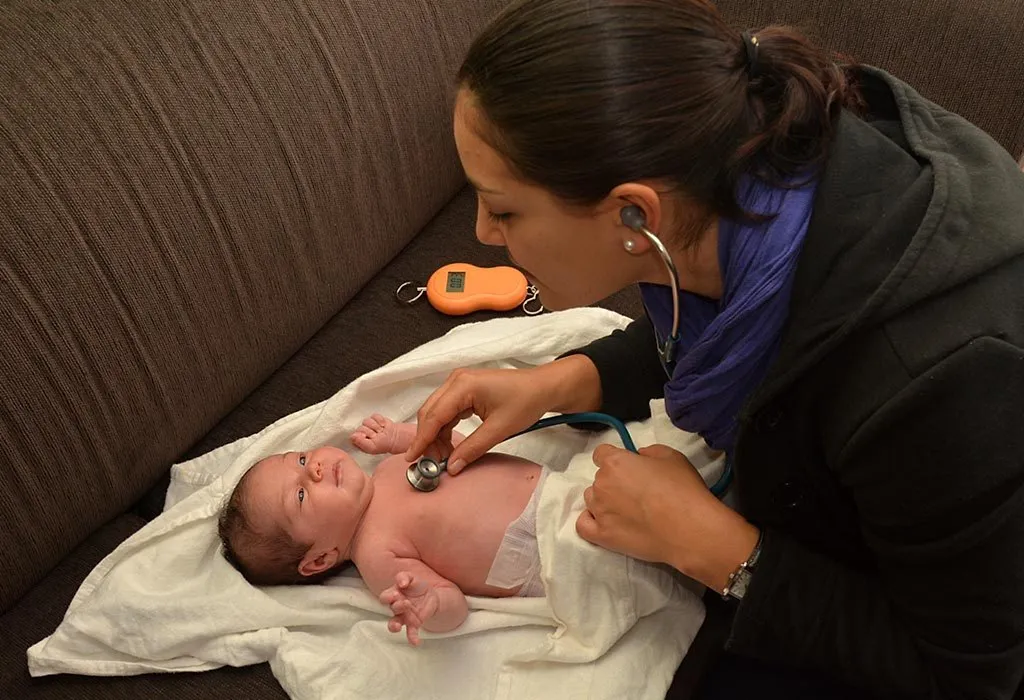1. Introduction to Baby Health During Treatments
Managing your baby’s health during medical treatments can be overwhelming, but it’s crucial to ensuring they recover smoothly and stay as comfortable as possible. Whether it’s a routine vaccination, a prescribed medication course, or a more serious medical intervention, understanding how to support your baby’s health through these processes is key to their well-being.
As a parent or caregiver, your role in monitoring their symptoms, providing emotional comfort, and ensuring they receive the right treatments is critical. Treatments can sometimes be stressful for both the baby and the parent, making it essential to be well-prepared and knowledgeable about what to expect and how to manage each step of the process.
2. Recognizing the Signs of Illness in Babies
Babies, especially newborns, can’t verbalize their discomfort or pain. This makes recognizing the signs of illness challenging, yet vital. Paying close attention to your baby’s behavior, body language, and physical symptoms is essential for early intervention.
- Changes in Behavior: Look for signs such as unusual fussiness, lethargy, or a sudden lack of interest in feeding. These could be early indicators of discomfort or illness.
- Fever: A high temperature is often one of the first signs of infection in babies. Knowing how to correctly take your baby’s temperature and understanding when it’s time to seek medical attention is critical.
- Respiratory Issues: Rapid breathing, wheezing, or persistent coughing can indicate respiratory problems that need medical assessment.
- Feeding Problems: Refusal to eat or difficulty swallowing may point to a more significant issue that requires treatment.
- Skin Changes: Rashes, swelling, or changes in skin color should be monitored closely as they can indicate allergic reactions, infections, or other underlying health issues.
Identifying these symptoms early and communicating them effectively to a healthcare provider can make a significant difference in your baby’s treatment outcome.
3. Types of Treatments Commonly Administered to Babies
Several types of treatments are commonly administered to babies, ranging from routine procedures to more involved medical interventions.
- Vaccinations and Immunizations: Vaccines are one of the most effective ways to protect your baby from infectious diseases. Understanding the vaccination schedule and potential side effects helps you prepare for these treatments.
- Antibiotics and Medications: When a bacterial infection is diagnosed, antibiotics may be prescribed. Administering these medications correctly, as per the doctor’s instructions, is essential for a full recovery.
- Surgical Procedures: Some babies may require minor or even major surgical interventions. Preparing for these procedures involves both emotional readiness and logistical planning, such as pre-operative instructions and post-operative care.
- Alternative Therapies: In certain situations, caregivers may explore alternative therapies such as acupuncture, chiropractic care, or homeopathy. It’s important to consult with a pediatrician before pursuing any alternative treatments to ensure they are safe and appropriate for your baby.
Understanding the range of treatments your baby may undergo prepares you to manage each situation with confidence and care.

4. Preparing for Medical Treatments
Proper preparation can make medical treatments less stressful for both you and your baby. Whether it’s a routine vaccination or a more intensive procedure, being prepared helps ensure a smoother experience.
- Emotional Preparation for Parents: It’s natural for parents to feel anxious or overwhelmed when their baby requires medical treatment. Taking time to understand the procedure, asking your healthcare provider questions, and knowing what to expect can help ease your anxiety. Joining online support groups or speaking to other parents who have gone through similar experiences may also provide reassurance.
- How to Prepare Babies for Doctor Visits: While babies may not fully comprehend what’s happening, they can pick up on your emotions. Staying calm and using a soothing tone during doctor visits can help keep them relaxed. Bringing along a favorite toy or blanket can provide comfort, creating a sense of familiarity in an unfamiliar environment.
- What to Pack for Hospital Stays or Appointments: If your baby needs to stay overnight at the hospital or for an extended period, having a well-packed bag can reduce stress. Essentials include extra diapers, baby wipes, bottles or breastfeeding supplies, a change of clothes, pacifiers, and any medications your baby might be on. You might also want to bring your baby’s favorite stuffed animal or a soothing object to make them feel more secure.
By planning ahead, you can minimize the emotional toll of medical treatments on both you and your baby.
5. Managing Baby’s Diet During Treatments
Proper nutrition plays a crucial role in your baby’s recovery and overall health during treatments. Babies have specific dietary needs, and ensuring they receive the right nutrients can support their immune system and aid in faster recovery.
- Importance of Nutrition in Recovery: During illness or treatments, your baby’s body needs additional nutrients to fight infections and heal. Foods rich in vitamins, minerals, and protein are essential for maintaining their strength and supporting their immune system.
- Best Foods to Offer During Illness: For babies who have started eating solid foods, focus on easily digestible and nutritious options like pureed vegetables, applesauce, or rice cereal. If your baby is still breastfeeding or formula-feeding, continue to offer these as they provide all the necessary nutrients in a form that’s gentle on the stomach.
- Breastfeeding vs. Formula Feeding During Treatments: Breastfeeding can provide additional immune support due to the antibodies in breast milk, which can be especially beneficial during illness. However, if your baby is formula-fed, ensure they are receiving a high-quality formula that supports their nutritional needs.
- Hydration Tips for Sick Babies: Keeping your baby hydrated is one of the most important aspects of care during treatments. Babies can easily become dehydrated, especially if they are running a fever or experiencing diarrhea. Offer breast milk or formula more frequently, and if your baby is old enough, consult your pediatrician about introducing oral rehydration solutions.
Proper feeding during treatment ensures that your baby stays nourished, hydrated, and ready to fight off illness.
6. Sleep and Rest: Key to Recovery
Adequate sleep is crucial for your baby’s recovery, as it allows their body to heal and regain strength. However, treatments and illness can sometimes disrupt your baby’s sleep patterns, making it important to create an environment conducive to rest.
- Ensuring Adequate Sleep During Illness: Babies may need more sleep than usual during illness as their bodies work to recover. Be flexible with nap schedules, and allow your baby to rest as needed throughout the day.
- How to Create a Restful Environment: A calm and quiet environment can help your baby sleep more peacefully. Dim the lights, reduce noise levels, and use a white noise machine if necessary to drown out disruptive sounds. Keeping your baby’s room at a comfortable temperature and ensuring their crib is cozy but safe can also promote better rest.
- The Role of Naps in Recovery: Naps are an essential part of recovery for sick babies. They not only help restore energy but also support cognitive and physical development. Encourage short but frequent naps if your baby’s night sleep is disrupted due to treatments or discomfort.
Helping your baby rest and recover ensures they get the sleep their body needs to fight off illness effectively.
7. Creating a Comfortable Healing Environment
A peaceful and comfortable environment at home plays a significant role in managing your baby’s health during treatments. Small adjustments can make a big difference in their comfort and overall recovery process.
- Setting Up a Soothing Space at Home: Choose a quiet, well-ventilated area in your home where your baby can rest. Soft lighting, gentle music, or white noise can help soothe them. Having their favorite toys or blankets nearby can create a sense of security.
- Managing Pain and Discomfort in Babies: Babies may experience pain or discomfort as a result of their treatments. Over-the-counter pain relievers, such as infant acetaminophen or ibuprofen (always under medical supervision), can help alleviate discomfort. Gentle massages, warm baths, and cuddling can also offer relief.
- Safe Use of Heat or Cold Therapies: For minor aches, fevers, or swelling, you might consider using heat or cold therapies. A lukewarm bath can help lower a fever, while a cool compress can soothe swollen or irritated areas. Be cautious with temperatures and always consult your pediatrician before applying any heat or cold therapies to ensure they are safe for your baby’s age and condition.
Creating a nurturing space helps your baby feel more at ease during their treatment and supports their recovery.

8. Administering Medications to Babies
Administering medication to a baby can be challenging, but it’s essential to do so correctly to ensure the treatment is effective and safe.
- Best Practices for Giving Medications to Babies: Always follow your doctor’s instructions closely. Use a syringe or dropper for liquid medications, and make sure to give the correct dose. If your baby resists taking medication, try giving it slowly or mixing it with a small amount of breast milk or formula (if approved by your doctor).
- How to Measure and Store Medications Safely: Accurate dosing is critical for your baby’s safety. Use the provided measuring device rather than kitchen spoons, which can vary in size. Store medications out of reach of children, and in the conditions recommended (room temperature or refrigerated, depending on the medication).
- Tips for Avoiding Medication Errors: To avoid accidental overdose, keep track of when medications were last given. A medication log can be helpful, especially if more than one caregiver is involved in the process. Ensure you understand the instructions provided by your healthcare provider, and never hesitate to ask for clarification.
Ensuring medication is administered safely and correctly is crucial for the success of your baby’s treatment plan.
9. Dealing with Side Effects of Treatments
Many treatments can come with side effects, and being prepared to manage them at home can make the recovery process smoother.
- Common Side Effects to Watch For: Some side effects are mild, such as drowsiness or minor digestive issues, while others, like allergic reactions or severe diarrhea, require immediate medical attention. Always monitor your baby closely after treatments.
- How to Manage Minor Side Effects at Home: Mild side effects, like a slight fever or irritability after vaccinations, can often be managed with rest and hydration. Infant pain relievers (as prescribed by your doctor) may help if your baby seems uncomfortable.
- When to Contact a Healthcare Professional About Side Effects: If your baby experiences any severe side effects—such as difficulty breathing, persistent vomiting, a high fever, or swelling—contact your doctor or seek emergency care immediately. Always trust your instincts; if something seems wrong, it’s better to get medical advice quickly.
Understanding and managing side effects ensures that your baby’s health stays on track during and after treatments.
10. Coping with Baby’s Stress During Treatment
Medical treatments can be stressful for babies, even if they can’t fully express their emotions. Recognizing and managing their stress is crucial for their emotional well-being.
- How Treatments Affect a Baby’s Emotional Health: Stress can manifest in babies through excessive crying, clinginess, or changes in sleep patterns. Even at a young age, they can feel discomfort or fear during treatments, especially if they are painful or unfamiliar.
- Techniques for Soothing a Stressed Baby: Holding and rocking your baby can provide comfort. Skin-to-skin contact, using a pacifier, or singing softly can also help. Gentle massages or a warm bath may relax them after stressful medical procedures.
- Recognizing Signs of Stress in Babies: Babies may not be able to communicate their stress verbally, but behavioral changes such as fussiness, refusal to feed, or sleep disturbances can signal that they are feeling anxious or stressed.
Supporting your baby emotionally during treatments is just as important as addressing their physical needs.









